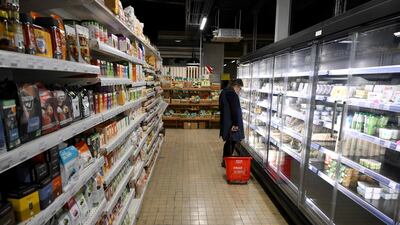Signs that the world's economies are returning to strength at vastly different rates in the post-pandemic period are reflected in the latest household income figures from the Organisation for Economic Co-operation and Development (OECD).
During the third quarter of last year, nine countries recorded an increase in real household incomes, while 12 registered a fall.
At 10.1 per cent, Austria had the largest increase, as payments associated with the government’s environmental tax reform and cost-of-living assistance boosted household incomes.
Within the G7 country grouping, France, Germany and Italy recorded real household income growth in the third quarter, with France topping the table at 0.8 per cent.
But, real household income per capita fell in Canada and the United Kingdom and was flat in the United States.
Taken together, real household income per capita grew by 0.2 per cent in the OECD as a whole in the third quarter of 2022, the first increase in real household income since the first quarter of 2021.
Meanwhile, real GDP per capita grew by 0.3 per cent in the third quarter of 2022, the same as in the second quarter.
Covid recovery
Real household income per capita was higher in the third quarter of 2022 than before the Covid-19 pandemic in all OECD countries for which data is available except the Czech Republic, Denmark, Finland, Portugal, Spain and the United Kingdom.
The figures in Portugal and Spain can be partly explained by the slow recovery in household income that is normally associated with self-employed people.
Spain and Portugal recorded large falls in this type of household income during the pandemic and was slower to recover than most other OCED countries.
In the UK, household disposable income per capita actually grew by 9 per cent in nominal terms between the fourth quarter of 2019 and the third of 2022, more than in Italy at 7.9 per cent and only slightly less than in France at 9.9 per cent.
But inflation has smashed household incomes in the UK, meaning that in real terms household income per capita declined by 3.9 per cent.


